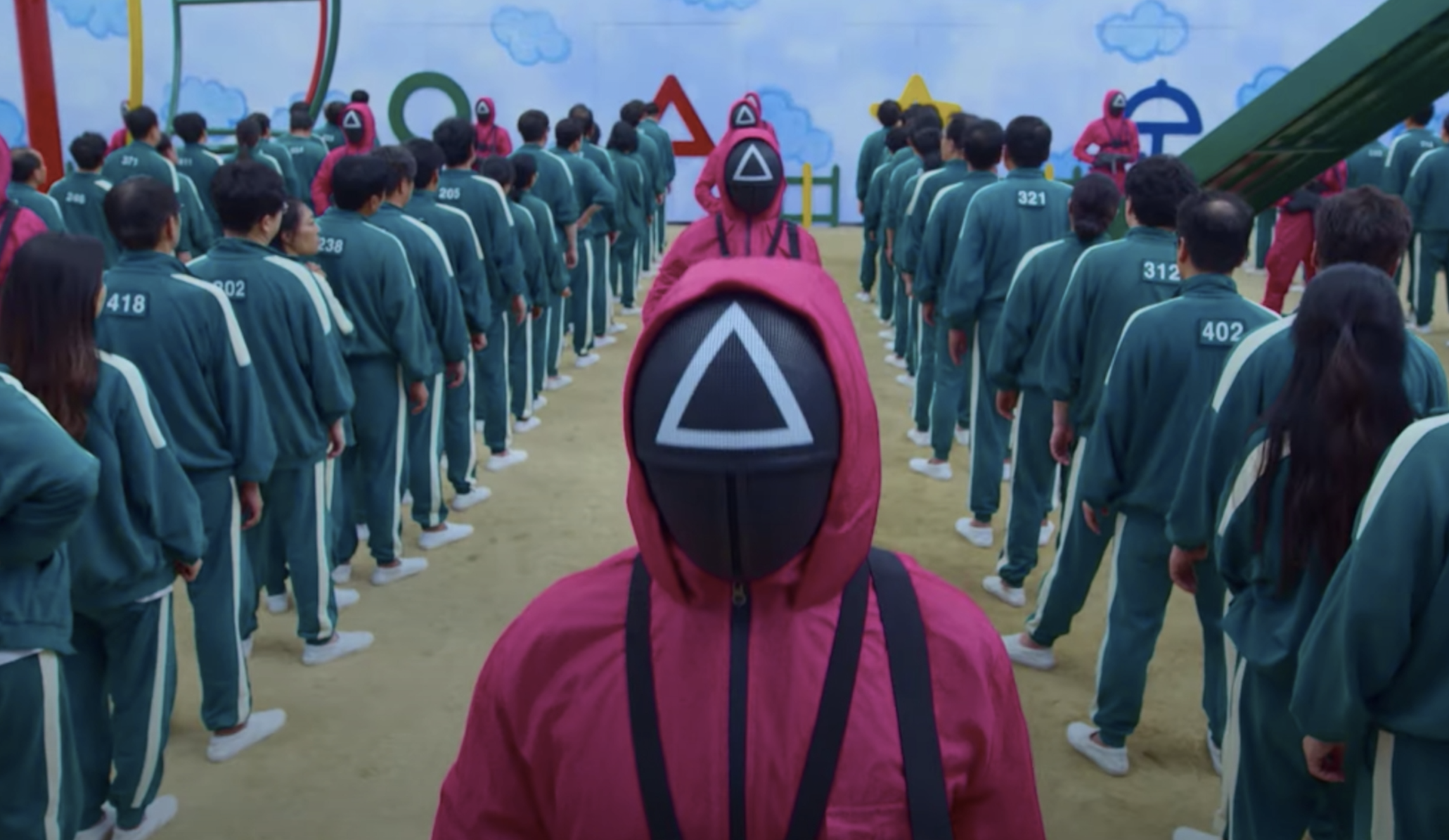'Squid Game,' Netflix's Latest Inexplicable Hit (Review)
We binged through all nine episodes of the Korean thriller that Ted Sarandos just said will soon be the most watched show ever on Netflix ... so you don't have to

The smarter way to stay on top of the streaming and OTT industry. Sign up below.
You are now subscribed
Your newsletter sign-up was successful
Desperation drives the characters taking part in the dystopian horrors of Netflix's Squid Game, just as it drives many of those hoping to find fresh escapism on the massive streaming platform. (Warning: The following paragraphs may contain some spoilers.)
Enticed by the show’s No. 1 status, viewers may be curious enough to take a deep nine-episode dive into its shallow premise. Compared to the depressing lineup of tough-guys-on-a-mission missions, unconventional assassins and by-the-numbers thrillers, this offering can seem a welcome addition.
The South Korean film industry has emerged as a top purveyor of twisted new zombie tales, supernatural stories and apocalyptic musings. The Netflix entry delves into a gorgeously rendered fantasy of extreme competition among the disposable elements of society. It’s not quite “Battle Royale”, Gangnam style, but there’s enough potential for gruesome stylized violence and pointed social commentary to keep it interesting.
Unfortunately, it’s a disappointing slog. Overlong and stretched far too thin, Squid Game is peppered with absurd coincidences and plagued by a lazy letdown of an ending. A few outstanding performances keep everything hopping along to a lackluster conclusion, complete with a sequel setup, but not enough to justify a joyless romp that takes itself way too seriously.
Likable schlub Seong Gi-Han lives with his ailing mother, and is strapped for cash. He also struggles with a bit of a gambling problem, and has ruthless loan sharks on his tail. Salvation appears in the form of a well-dressed stranger at a train station who gives him a chance to pick up a little money playing a schoolyard game, and later mentions an opportunity for Seong to play for much higher stakes.
Taking place in contemporary Seoul, the recruiter’s offer seems innocuous enough. Seong enters a van, is rendered unconscious, and soon finds himself among 456 members of South Korea’s precariat in a surreal compound far from home. Asked to play a simple children’s game, the participants are shocked to discover “elimination” for failing to follow the rules has deadly consequences. Bodies are piled high in the initial panic.
In a show of fairness, the game’s shadowy organizers give the surviving players a chance to drop out, but not before revealing the enormous jackpot to be split among the winners following a series of games. Most of them return, risking a quick and pastel death for a potential way out of their unbearable financial misery.
The smarter way to stay on top of the streaming and OTT industry. Sign up below.
It’s a familiar storyline, but the sets are eye-catching. Masked, red-clad workers differentiated by symbols painted over their faces trudge through enclosures resembling Pee Wee’s Playhouse with a touch of Escher. The “playgrounds” for the competitors are surrounded by the cheerful decor found in children’s rooms, while other scenes take place amid grimy despair and glittering opulence. An interesting subplot crops up involving rogue employees and an organ-harvesting side hustle, but is quickly cut short.
The mystery surrounding the games, the hosts, and any ultimate purpose keep the episodes chugging along. The games themselves take up a surprisingly small share of the run time, while the motivations and dilemmas faced by the main characters are explored. Nothing is revealed about the type of games before they are to be played, and any scrap of information can make all the difference.
Predictably, some begin to question their loyalty to hastily drawn alliances as well as to each other. It’s only a matter of time before good and bad people begin to take part in betrayals, and animosities get up close and bloody.
As workers callously gun down losing players and whisk away the corpses in gift-wrapped boxes, the show builds toward a revelation.
Early in the series, a police officer searching for his missing brother becomes involved in the happenings, and manages to sneak into the compound disguised as a worker. He uncovers the ongoing history of the game amid folders containing names of the previous participants, which must number in the thousands. How this has managed to go on for so long without raising the alarm of families, friends and creditors is anyone’s guess.
The arrival of a group of wealthy “VIPS” who wear bejeweled animal masks and proceed to wallow in the organization’s complimentary decadence gives some clue into its reach and influence, but the men only spout banalities to each other in various American accents.
They place bets, seemingly as bored by the proceedings as viewers are likely to be by the game’s final round. Thankfully, this annoying cabal soon disappears from the scene. The cop also exits amid a preposterous twist, but don’t worry: A sequel is probably on the way with the promise of answering lingering questions.
Squid Game has plenty of opportunities to take its premise in wild, unpredictable directions, but chooses to keep the story on a straight, often maudlin path. There are some tense surprises as to how the games will play out, but fewer shocks when it comes to who will be the next to die. The games themselves are rarely riveting, and the bloody aftermaths soon become monotonous.
Netflix has enjoyed a healthy run of unexpected crowd-pleasers, from Eastern European softcore to overlooked old movies. Squid Game seems an unlikely addition to this trend, but it will pass the time for those desperate multitudes, at least until the next inexplicable hit.
Curt Vanstrum is a Los Angeles-based writer who knows a thing or two about fast cars, good libraries and cheap thrills.
